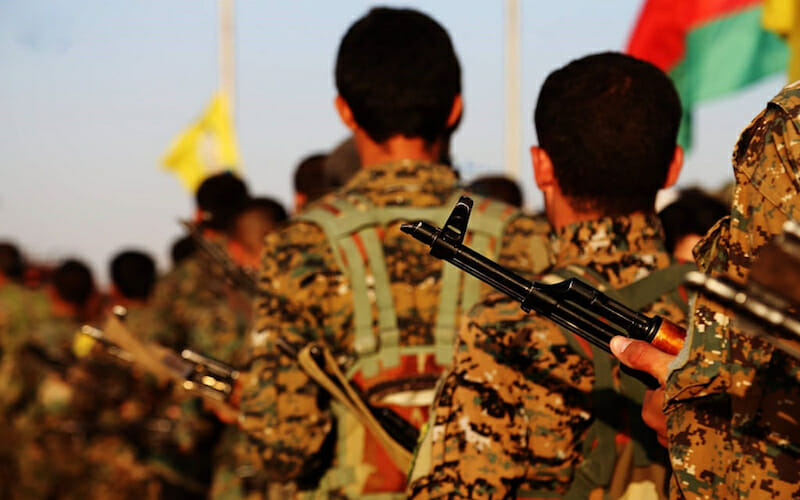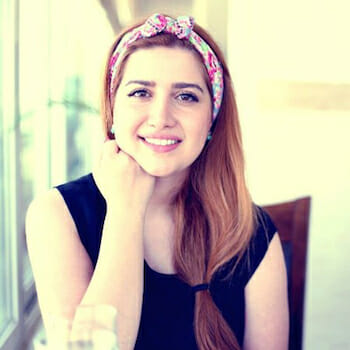
The Case of Syrian Kurds
On 14 January 2018, the U.S.-led coalition in Syria announced the formation of a 30,000-strong border security force to be commanded by the U.S.-backed and Kurdish-led Syrian Democratic Forces (SDF), an alliance of Kurds, Arabs, and Assyrians in northern Syria. As one might have expected, international and regional reactions to the move came immediately. Turkey in particular, through its Chief of General Staff Gen. Hulusi Akar vowed to take its concerns to NATO, warning that Ankara “will not allow an extension of the PKK to be given support and armed under the guise of being an operational partner.” More threateningly, Turkish president Tayyip Erdogan said that his country’s “mission is to strangle [the force] before it’s even born.”
Other countries such as Russia and Iran also vehemently opposed the move, while the Syrian government of Bashar al-Assad warned that Syrians who join the force are considered “traitors.” As such, and amid its fight on the Islamic State (IS), the SDF might find itself in multiple conflicts with local and regional actors, with implications for regional and international security.
Supporters of the Kurds
Today, the SDF controls more than a quarter of northern Syria’s eastern Euphrates, almost three times size of Lebanon. Despite having to face a growing number of internal and external challenges, the SDF spent the last four years working to enhance public institutions, local councils, schools, and security forces. Moreover, since September 2017, the Kurdish-led authorities in SDF-held territories held two local elections, part of a program to build the capacity of governing institutions. Furthermore, a third vote to elect an assembly that would act like a parliament for a federal system is under way.
The SDF also successfully managed to gain the support of international actors. For example, with the backing of the U.S.-led coalition, the SDF drove out IS militants from areas in the east of Euphrates. And, when liberating some of Deir al-Zour areas from IS, the SDF joined forces with the Russian army. Such moves were not welcomed by Turkey, who established field hospitals in north Syria’s Kumlu border close to Idlib and used the area as a forward looking base to launch attacks on Afreen in the Aleppo countryside.
But, these recent Turkish actions should not be considered in insolation of Turkey’s long-held position toward the Kurds of Syria. Indeed, for the past seven years, Turkey worked to obstruct western support to the Kurdish People’s Protection Units (YPG), prevent the establishment of a de facto Kurdish autonomous region in Syria, or tolerate the Kurdish cause to take center stage globally.
But Turkey’s arsenal of options in dealing with the SDF is becoming increasingly limited. Indeed, Washington has made it clear that aiding the YPG is part of its strategy in Syria to ensure security and stability in liberated areas. Russia, too, has accepted realities on the ground and joined forces with the SDF in Deir al-Zour. Together, Washington and Moscow seem determined to work with the SDF, in part to weaken Turkey’s influence in Syria. If the SDF play its cards right, Turkey may end up having no choice but to accept the realities on the ground, including those of an autonomous Kurdish region in Syria.
The SDF: The Elephant in the Room, but till when?
On 29-30 January 2018, the Kurds are expected to take part in the Syria peace talks to be held in Sochi, Russia. The Sochi conference will convene to discuss the possibilities of establishing a federal system in Syria.
Since 2013, and despite U.S opposition to establishing an autonomous Kurdish region in Syria, the Kurds have taken many necessary steps toward that end.
Equally important, in a move widely seen as bolstering Kurdish autonomy in Syria, France’s Justice Minister Nicole Belloubet ignited the hope by referring to the northern part of Syria as Syrian Kurdistan. Equally important, the minister continued to urge the SDF to try French jihadists captured in the battleground, effectively granting Kurdish-held areas a de facto diplomatic and political recognition.
For Syrian Kurds to secure and build on their hard-fought political, diplomatic, and security achievements, they need to look no further than the Kurdistan region of Iraq for lessons-learned. While the KRI still enjoys relative autonomy, the miscalculation associated with the holding of referendum in September 2017 undisputedly backfired, leading to the loss of achievements that Iraq’s Kurds managed to gain over the past 25 years. Therefore, Syrian Kurds ought to carefully weight all scenarios and to play their cards cautiously and carefully.
Among KRI losses are the vast oil revenues from Kirkuk oil fields. This is something the SDF should work to avoid by handing over control over Deir al-Zour oil fields to the central government in Damascus as a show of goodwill and to promote stability in SDF-held areas
Likewise, previously KRI-controlled disputed areas were lost to the Iraqi government as a result of the referendum, and the SDF should work to avoid a similar fate. In this regard, Arab-majority areas that are currently controlled by SDF, part of Raqqa and Deir al-Zour, should be handed over to the Syrian government. The KRI-Baghdad’s situation may encourage Assad to follow in the footsteps of al-Abadi and reclaim Arab-majority areas. When that happens, and like the KRI-Baghdad situation, external powers are less likely to back the Kurds. However, handover of captured territories should come with returns to the SDF, which can be agreed upon in future negotiations with Damascus.
It is also important that the SDF enhances their relations with the external powers, including Russia, to protect against possible Turkish offenses on SDF. Similarly, the Kurds need to enhance their relations with the United States and promote themselves as a viable option in post-Assad Syria, which the U.S works to achieve through military and diplomatic means. The SDF should also demand that the Americans guarantee them support for the long-term. This is because Turkey and Syria have made it clear that as soon as the Americans leave, they are bound to launch attack on the Syrian Kurds.
In foreign policy, nothing is guaranteed. After Turkey shot down a Russian military jet for violating Turkish airspace, Moscow rushed to aid the YPG in western Syria. Later, in February 2016, a Syrian Kurdish diplomatic mission was opened in Moscow. Moreover, in March 2017, reports surfaced that Russia intends to build a military facility in Kurdish-controlled Afrin, and to provide trainings to the Kurds.
Aside from developing strong relations with external powers, the Kurds must work to develop relations with Damascus, to help resolve the Syrian crisis. Pursuing a pact to bolster an Assad-Kurds talk may smooth things down and stave off a new war or at least make it unlikely to emerge. In Sep 2017, Syrian Foreign Minister Walis Muallem revealed Damascus’s willingness to grant the Kurds greater autonomy as soon as the war in Syria ends. Thus, it is in the interests of Kurds, ahead of the Sochi talks, to advocate for a lasting peace that could put an end to the Syrian conflict.

